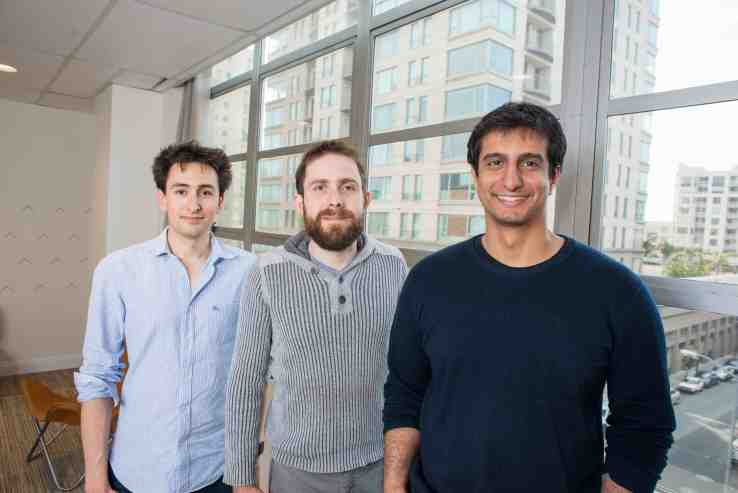
Triplebyte is a three-year-old, 25-person, San Francisco-based hiring platform that says it makes recruiting and technical screening for tech companies more efficient. It’s hardly alone in making this claim, of course. You can’t swing a dead cat without hitting a tech recruiting platform that claims to improve on the ways that companies identify and recruit talented engineers. Still, Triplebyte makes a persuasive case for why hiring companies should give it a shot.
One of its biggest differentiators, it says, is that its process is “background blind,” meaning it’s ostensibly able to get engineers in front of companies that might not otherwise be interested in them based on their past employers or education. How? By operating like an applied research company, insists cofounder and CEO Harj Taggar — who, before launching Triplebyte, spent the previous five years as a partner with Y Combinator.
Triplebyte’s first steps involved extensively interviewing engineers in the YC alumni network, capturing every data point possible before applying machine learning to better understand both automated assessment tests and human technical reviews (which typically involve an engineer interviewing an engineering candidate).
Because it was limited to Y Combinator companies, that data set was fairly small to start, but it was enough to create an adaptive multiple-choice automated assessment test that began producing results. Over time, companies that aren’t affiliated with YC — including Apple, Stripe, Dropbox and Instacart — began trying out Triplebyte for their hiring needs.
Triplebyte smartly used the development to entice a broader pool of engineers to the platform, which broadened the data points it was collecting, making the platform smarter still. Now, Taggar says, the company’s automated assessment test is so good that Triplebyte makes companies agree that the Triplebyte candidates with whom they engage will be fast-tracked through the application process and not given further phone screens or coding challenges.
It’s a bold demand and one that could presumably backfire on Triplebyte should it rack up enough unhappy customers. But Taggar suggests the opposite is happening. “The metric that companies care most about is what percentage of on-site interviews convert into hires, and the industry standard is 20 percent. Triplebyte’s placement rate is 40 percent,” says Taggar, who calls it “more accurate at figuring out which candidates a company wants to hire than the company itself.”
As for who these companies are, while Triplebyte’s clients are primarily Bay Area-based tech companies, both big and small, the longer-term vision is to become a de facto hiring platform for “non-tech” companies that have never hired technical talent before and realize they need in-house help.
What if engineers don’t want those jobs? “We aren’t going to force you to work for KFC,” says Taggar when asked about that brand specifically. Job candidates “have agency.” But Triplebyte “does want to level up everyone. Maybe the same person who wants to work for Facebook doesn’t want to work for a fast-food chain. But maybe another engineer does. We just act as the sorting engine, making sure that people are working at the best company, relative to their skills.”
New funding should help get the company toward that end. While Triplebyte had originally sealed up $4.5 million in seed funding, it just closed on a fresh $10 million in Series A funding.
One of the outfit’s seed investors, Initialized Capital, led the round, which also included participation from other earlier backers, including Paul Graham and Jessica Livingston of Y Combinator; founders Emmet Shear and Kyle Vogt, and the venture firm Caffeinated Capital.
New investors Marissa Mayer and Xavier Niel also joined the round.
Pictured above, from left to right: Triplebyte founders Guillaume Luccisano, Ammon Bartram, and Harj Taggar.


